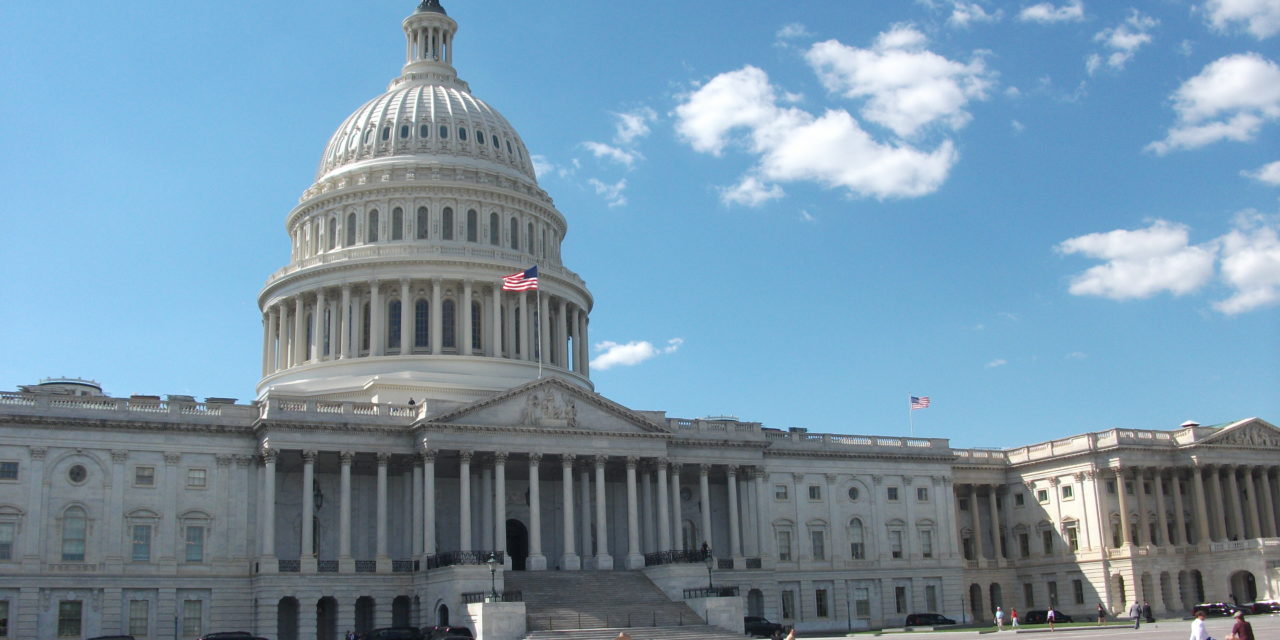Overnight Wednesday, after wrangling for days – and nights — the United States Senate finally agreed upon a $2 trillion dollar financial package known as the Coronavirus Aid, Relief, and Economic Security (CARES) Act. Its goal; to fight the Coronavirus Disease 2019 (COVID-19) pandemic and help Americans weather the economic fallout of the crisis. The bill still has to pass the U.S. House, and the date for that vote is not yet known.
The bipartisan bill will provide an underpinning to desperate American small businesses and individuals caught on the sinking ship that is the U.S. economy; passing 96 to zero. The U.S. is one of 169 countries around the globe dealing with the public health and economy crisis brought on by the coronavirus pandemic known as COVID-19.
This is the largest financial rescue package in U.S. history; nothing short of a “Marshall Plan”* to protect American families, the workforce and small businesses. This is not a bill to bail out big corporations – from appearances, this bill is focused squarely on small businesses and individuals; to help them survive the spread of the highly infectious coronavirus and the breathtaking full stop to the U.S. economy. The bill is the third in a series of measures rapidly enacted to help stem the crisis threatening to topple the formerly robust U.S. economy.
“The public health and economic crisis we face is unlike any in living memory, and it demands extraordinary action to protect millions of Americans at risk of losing their jobs, incomes, and businesses through no fault of their own,” said Colorado U.S. Senator Michael Bennet in a statement issued late Wednesday. “Today’s bipartisan agreement is a major step toward addressing the unprecedented scope of this crisis and the need for urgent action to support American workers and families. The extra time taken to get this right resulted in a much better final product.”
The bill contains critical protections including a significantly larger commitment to front line health care workers and hospitals and historic expansions of unemployment benefits to support American workers. It includes billions in increased support for small businesses including low interest loans and assistance to keep people on payrolls, and protected by their company-provided healthcare in critical industries such as the airlines industries, and direct financial assistance to the most vulnerable Americans and families.
According to Bennet, the bill structures the aid with strong transparency and accountability, discouraging the sort of corporate bonuses and stock buybacks that occurred as a result of the 2017 corporate tax cuts. A communication from Bennet’s senate office outlines some of the major improvements to the bill, urged by both Bennet and Colorado U.S. Senator Cory Gardner as a result of the bipartisan negotiations with the administration. That detailed message is available HERE.
Colorado priorities included in the package:
- Direct Cash Payments: Direct economic support payments, and the CARES Act provides the full $1,200 payment to all Americans below the income caps and $500 per child. The typical family of four will receive $3,400.
- Funding to Boost Production and Acquisition of Personal Protective Equipment (PPE) and Medical Supplies: Bennet called for action on the Senate floor and the CARES Act allocates $1 billion, allowing the Department of Defense to invest in manufacturing capabilities to produce PPE and medical equipment. Funding throughout the bill will support production and acquisition of supplies and equipment through the Biomedical Advanced Research and Development Authority (BARDA) and the Strategic National Stockpile. FEMA will also use part of their new funding for medical supply and equipment acquisition.
- Funding for Telehealth Services: The Centers for Medicare & Medicaid Services (CMS) are to issue necessary guidance for Colorado to take advantage of the expanded Medicare telehealth services that were secured in the first coronavirus funding package. The Federal Communications Commission (FCC) will increase support for telehealth to expand access to care while limiting in-person visits wherever possible to reduce the risk of exposure to the coronavirus. This is especially important for rural areas. The CARES Act provides $200 million to the FCC for a telehealth pilot program. The bill also provides greater telehealth flexibility to community health centers and rural health clinics. Money throughout the bill will support utilization of telehealth for home dialysis, hospice care, and homes health services, and telehealth use by agencies like the Indian Health Service (IHS) and the U.S. Department of Veterans Affairs (VA).
- Funding to Sustain Rural Hospitals and Providers: Bennet introduced the bipartisan Immediate Relief for Rural Facilities and Providers Act that would extend a lifeline to rural hospitals and providers and the 60 million rural Americans (like us in Chaffee County) who depend on them for health care. Across the country, rural hospitals, independent physician practices, ambulatory surgery centers, and other outpatient facilities play a critical role treating cancer, chronic diseases, and other pressing health conditions. Many rural providers, facing resource shortages, have had to close or dramatically reduce operations, damaging the health and economies of our rural communities. On top of a $100 billion fund to reimburse COVID-19 costs to hospitals, the CARES Act ensures that hospitals can request up to six months of advanced, accelerated payments equal to 100 percent of prior reimbursement or lost revenue (or 125 percent for rural critical access hospitals). It also lifts the Medicare sequester and increases Medicare reimbursement by 20 percent for coronavirus services.
- Increased Funding for Schools and School Employees: The CARES Act includes funding that Bennet called for to support schools and school employees working overtime to support their communities during this crisis. $13.5 billion is available for states to use through formula grants to compensate school employees, to purchase sanitation and cleaning supplies for schools, to plan and coordinate during long-term school closures, and to defray the cost of technology needed for distance learning.
- Expanded Unemployment Insurance (UI): Bennet unveiled a sweeping proposal to strengthen and modernize unemployment insurance by expanding eligibility for regular UI and standardizing the amount received across states, which was put into the CARES Act. It expands Unemployment Insurance to cover self-employed, independent contractors, and gig workers, and adds a substantial increase to every recipient’s weekly benefit.
- Funding to Bring Stranded Americans Home: Due to coronavirus border closures and airline cutbacks, thousands of Americans remain stranded overseas with no way to get home.The CARES Act includes $324 million for Diplomatic Programs, which will bolster repatriation efforts and the State Department’s Bureau of Medical Services.
- Cybersecurity Funding: After reports of cyber activity on Department of Health and Human Services’ (HHS) networks, the Cybersecurity and Infrastructure Security Agency (CISA) at the Department of Homeland Security was allocated an extra $9 million in the CARES Act to conduct supply chain analysis and help with impacted critical infrastructure coordination.
- Colorado National Guard Funding: Sens. Bennet, Gardner, and members of the Colorado Congressional Delegation along with other states, supported additional funding for the Colorado National Guard as they work to respond to the statewide COVID-19 emergency. The CARES Act includes $1.4 billion for National Guard deployments.
The aid is barely in time. The first cases of coronavirus were only recorded in China sometime in November, and the rest of the world found out about it in January. The U.S. recorded its first case in late January, 2020. As of this morning, there are more than 68,000 cases in the U.S. and it has killed more than 1,000 U.S. residents so far.
The COVID-19 pandemic is sweeping the world, a non-political virus with one purpose; infecting people, because that is how it reproduces and survives. This public health emergency has now sickened nearly half a million worldwide; killing more than 20,000 so far. According to the World Health Organization, the U.S., specifically New York, has just become the epicenter of the pandemic.
*”Marshall Plan” is the term given to the multi-billion dollar plan to rebuild western Europe after the ravages of World War II. The United States transferred over $12 billion in economic recovery programs to Western European economies after the end of the war.
Featured photo: The United States Capital.Photo by Jan Wondra.










Recent Comments